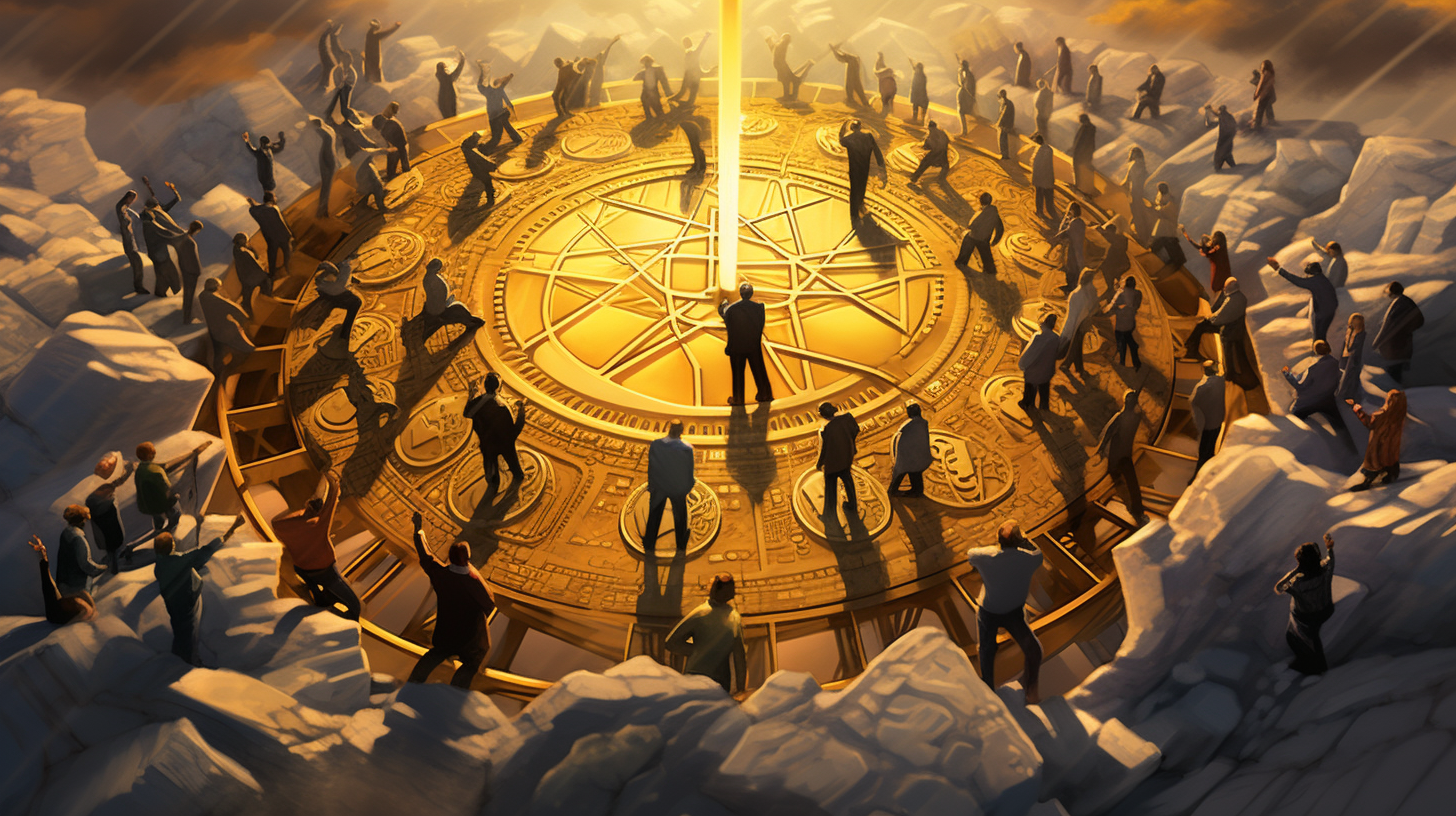Decentralized Autonomous Organizations (DAOs) have long been heralded as the epitome of organizational democracy, promising an era of governance without the hierarchical pitfalls of traditional institutions. Yet, as members of these cutting-edge collectives are starting to realize, not all is harmonious in the decentralized utopia. The latest debates stirring up the crypto community spotlight an intriguing paradox – can true democracy flourish in systems designed to be leaderless, or are power dynamics merely shifting beneath the surface?
The Illusion of Egalitarianism
At first glance, DAOs seem to embody egalitarian principles through and through. Members are empowered to vote on proposals directly, with the weight of their voice often tied to the size of their token holdings. But scratch below the surface, and this meritocratic veneer begins to reveal its cracks. As discussions grow heated in forums and across social networks, a recurring theme emerges: are these systems inadvertently concentrating power among the ‘crypto-rich’?
Take, for instance, a recent proposal within a prominent DAO that sought to overhaul its funding allocation mechanism. Initial consensus was optimistic until a coalition of whales – members with substantial token holdings – swayed the vote in their favor, sparking outrage among smaller stakeholders. This incident ignited a fierce conversation about the mechanisms of control within these decentralized bodies.
Dissenting Voices and The Quest for Balance
The aforementioned controversy has prompted some DAOs to introspect and explore alternative governance models that aim to mitigate disparities. Innovations such as quadratic voting, where the cost of additional votes increases exponentially, seek to harmonize influence, allowing the less wealthy but more numerous participants a louder voice. Yet, the question remains – can such initiatives counteract the entrenched privileges of the few?
“In the quest for decentralization, we mustn’t lose sight of the core principle: the power of the collective,” muses a long-time DAO contributor. Her sentiment echoes across the crypto sphere, challenging the notion that code alone can guarantee fair governance.
DAOs and the Social Fabric: A Repeat of History?
One can’t help but draw parallels to historical shifts in governance, where revolutions promised power to the people, only to eventually replicate imbalances of the past. In the context of DAOs, similar dynamics are unfolding. Ambitious projects like Neo-Tokyo, mentioned in a previous investigation, brought to light the concern that an imbalance in participation could lead to a digital replication of elitism and bureaucracy.
Some are looking back at traditional organizational models, drawing lessons to blend with the novel capabilities of blockchain tech. A synthesis of the old and new world, preserving human empathy and judgment but empowered by the immutable and transparent nature of blockchain-based processes.
Forward-Thinking DAO Solutions
Progressive DAOs are experimenting with reputation-based systems and delegated voting to cultivate a more diverse decision-making ecosystem. The latter, particularly, raises eyebrows as it introduces representative elements into the direct democracy of DAOs. Could we be witnessing the emergence of a new form of digital ‘republicanism’ within these virtual communities?
On the far side of the spectrum, radical proposals like ‘liquid democracy’ hint at a future where members can dynamically choose to vote directly or delegate their voting power based on the issue at hand, merging the best of both direct and representative democracy.
The Ever-Changing Crypto Political Theatre
The crypto world is a political theatre in its own right, characterized by lively discourse and an undeniable pioneering spirit. While the notion of dissent within decentralization may seem counterintuitive, it is a testament to the robust debate and vibrant community engagement foundational to the crypto ecosystem.
As DAOs continue to navigate the nuanced waters of digital governance, it will be fascinating to witness which models will rise to prominence and which will fall to the wayside. Can decentralized structures transcend their growing pains to establish truly equitable governance, or is the dream of a crypto-powered democracy simply a ‘blockchain mirage’?
The jury is still out, but one thing is certain: the dialogue surrounding power dynamics in DAOs is more critical than ever, and its outcome will shape the future of collective decision-making in the blockchain age.
